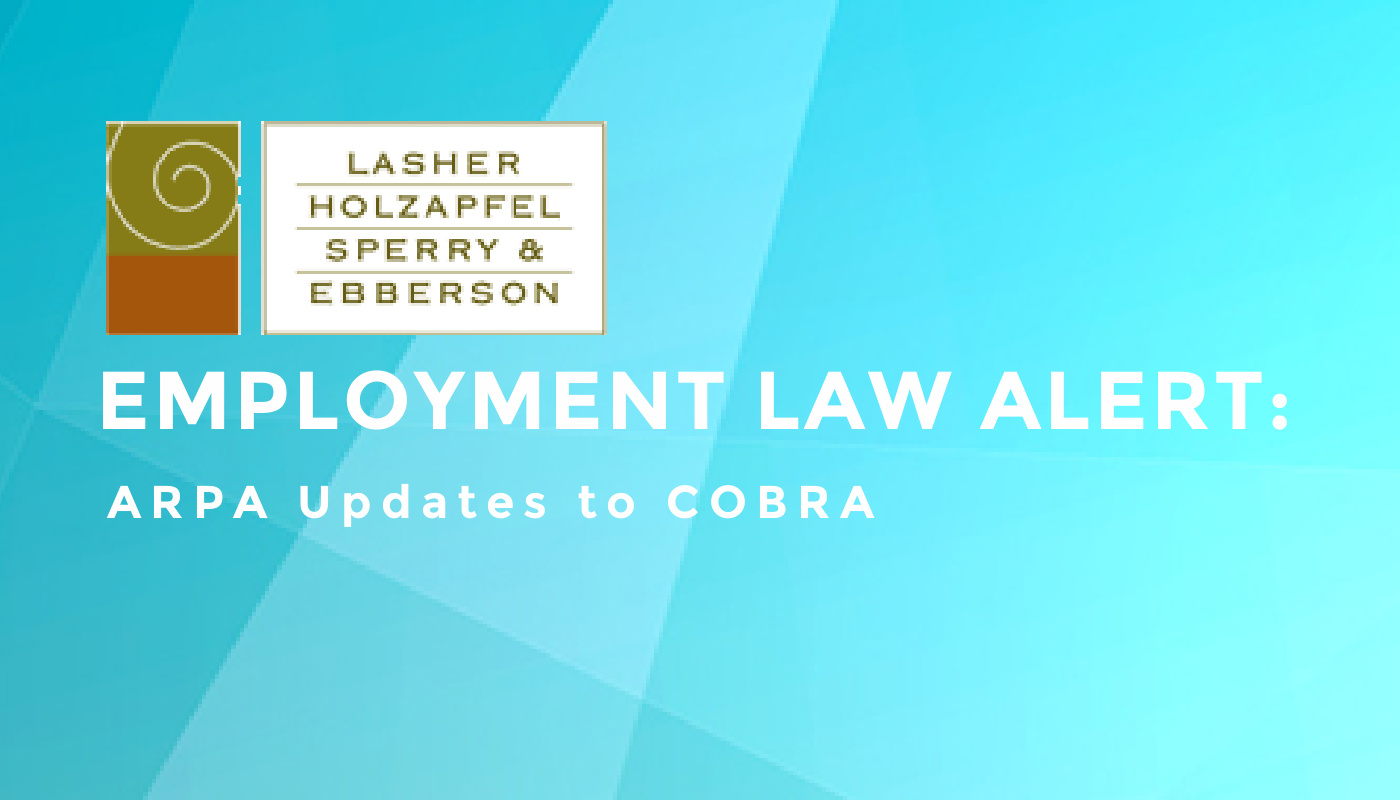News Category: Employment
Privacy in the Workplace: Employee Dress or Appearance Policies
(This blog is the third installment in a multi-part series regarding privacy in the workplace.) Employee dress codes and policies can be an important way to ensure that employees properly represent the company’s image and do not offend customers or the general public. Dress codes may also promote safety in the workplace (for example, no
EMPLOYMENT LAW ALERT: THE NEW HEALTH EMERGENCY LABOR STANDARDS ACT
On May 11, 2021, Governor Inslee signed into law the Health Emergency Labor Standards Act. The Act revises the state’s workers’ compensation and industrial health and safety statutes to provide new protections for high risk and frontline workers during any public health emergency, including the ongoing coronavirus pandemic. As a result, the additional protections under
Privacy in the Workplace: Employee Searches
(This blog is the second installment in a multi-part series regarding privacy in the workplace.) Employers have a general right to protect their property and employees. In addition to surveillance and monitoring, some employers choose to conduct searches of areas and equipment used by employees. This can include searches of offices, lockers, desks, phones, computers,
EMPLOYMENT LAW ALERT: ARPA Updates to COBRA
On March 12, 2021, President Biden signed into law the American Rescue Plan Act (ARPA). Importantly for employers, under the ARPA, any employee who is eligible for continuation of health insurance benefits pursuant to the Consolidated Omnibus Budget Reconciliation Act (COBRA) due to an involuntary termination (or reduction in hours) must be offered a subsidy
Privacy in the Workplace: Employee Surveillance
(This blog is the first installment in a multi-part series regarding privacy in the workplace.) Employers often seek to monitor or surveil their employees in the workplace. Though workplace monitoring, searches, and surveillance can be a valuable tool for any employer, doing so is not without risk. Employers should make sure their workplace search, monitoring,
The Americans with Disabilities Act and Working in the Age of COVID-19
As parts of the country begin to re-open following closures associated with the COVID-19 pandemic, employers will face many issues regarding the best way to bring their employees back to work. Throughout the pandemic, federal agencies, including the U.S. Equal Employment Opportunity Commission, have provided guidance for employers regarding the application of federal laws to
Overtime Gets an Overhaul
The Washington Department of Labor and Industries announced sweeping changes, effective July 1, 2020, to the rules determining whether an employee in Washington State is entitled to receive overtime compensation. In Washington State, the default rule is that all employees are entitled to overtime compensation. There are exceptions, however, when the employee meets three important
The Americans with Disabilities Act and the Interactive Process
Under the Americans with Disabilities Act (“ADA”), employers are required to provide reasonable accommodations to employees with disabilities, unless doing so would pose an undue hardship for the employer. Such accommodations could include making existing facilities more accessible, restructuring a position, offering a modified work schedule, or even reassigning the employee to a vacant position.
To Sign or Not to Sign (That Severance Agreement)? That is the Question
Although Washington employers are generally not required to provide severance pay to a terminated employee (except if promised in an employee handbook or employment contract), many employers still offer severance as a gesture of good will. There are any several factors, however, that should be considered when deciding whether to sign a severance agreement. An
Don’t Let Your Former Employer “Blacklist” You
The Washington Law Against Discrimination makes it unlawful for an employer to “discharge, expel, or otherwise discriminate” against a job applicant or employee on the basis of that person’s protected characteristic such as race, age, or sex. Likewise, the WLAD also makes it unlawful for an employer to do the same because he or she





